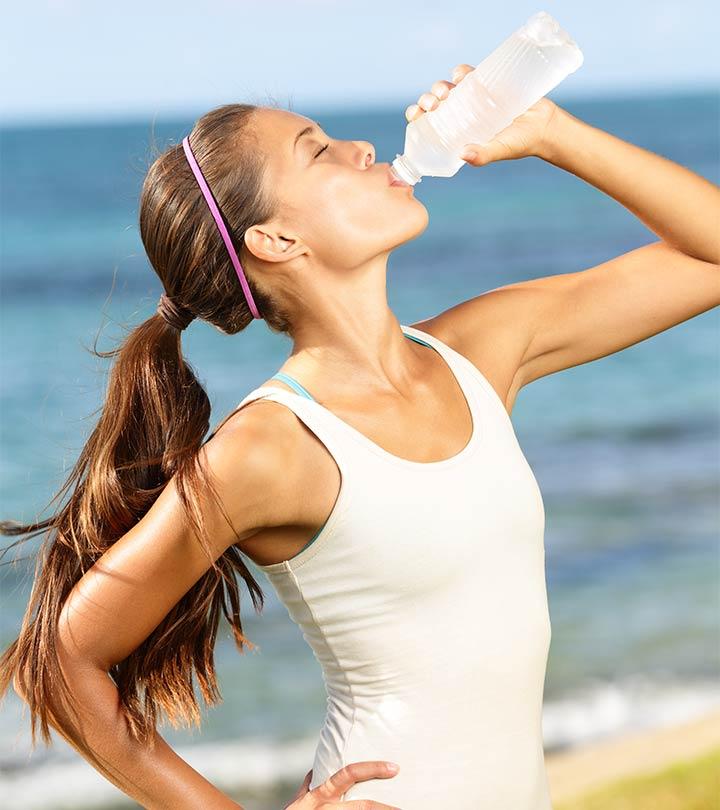Does
your throat feel parched no matter how much water you drink? Do you
feel unusually thirsty at night? Well, you are not alone. Excessive
thirst is a fairly common symptom that could indicate an underlying
health issue and may even warrant medical attention in some cases. If
you want to know what causes such intense episodes of thirst and how you
can manage them, keep reading!
The common factors that may trigger excessive thirst are discussed below.
Table Of Contents
- What Is Excessive Thirst?
- Causes Of And Risk Factors For Excessive Thirst
- How To Treat Excessive Thirst
- Foods With High Water Content
What Is Excessive Thirst?
An intense thirst that doesn’t ease even after drinking plenty of fluids is called excessive thirst. The medical term for this condition is polydipsia. Excessive thirst may also cause blurred vision and fatigue in some people. The symptoms associated with excessive thirst might be a result of a serious underlying medical condition.The common factors that may trigger excessive thirst are discussed below.
Causes And Risk Factors For Excessive Thirst
The causes of excessive thirst may include:- Consuming salty or spicy foods
- An illness
- Strenuous physical activity
- Vomiting
- Diarrhea
- Suffering burns
- Significant blood loss
- Some prescription medications like lithium, diuretics, and certain antipsychotics.
- Dehydration
- A dry mouth
- Smoking
- Vitamin or nutrient deficiencies
- Pregnancy
- Anxiety and stress
- Intake of too much caffeine
- Diabetes mellitus
- Diabetes insipidus – This type of diabetes occurs when your body is unable to regulate fluids properly. An imbalance of water in your body can cause excessive thirst and urination.
- Dipsogenic diabetes insipidus – This is caused due to a defect in the thirst mechanism that results in increased thirst and fluid intake.
- Kidney, liver, or heart failure
- Sepsis – A dangerous inflammatory reaction from an infection due to bacteria or other germs.
How To Treat Excessive Thirst
If your excessive thirst is simply a natural need and not because of a serious underlying condition, you can treat it easily by drinking fluids throughout the day.A good way to know if your body is getting enough fluids is to check the color of your urine. If it is light, more in volume, and does not have a strong smell, it is an indication that your body is getting enough water.
However, if your urine is dark, less in volume, and leaves a strong smell behind, you need to get more water into your system.
You should drink more water especially when you:
- Are outdoors, and the weather is hot
- Engage in strenuous physical activity
- Are suffering from diarrhea
- Vomiting
- Have fever
You can also combat excessive thirst by consuming foods that have high water content.
Foods With High Water Content
You can consume the following water-rich foods:- Celery
- Watermelon
- Tomatoes
- Oranges
- Cantaloupe
- Raspberries
- Cucumber
- Green pepper
- Spinach
- Melons
Most cases of excessive thirst can be tackled by rehydrating yourself. You can also try altering your diet and consume foods that are not too salty or spicy. However, if excessive thirst continues to bother you, it is time you see a doctor for your condition. Once the underlying cause of your symptoms is determined, you can proceed with the treatment to overcome the constant feeling of thirst.
source click here

Comments
Post a Comment